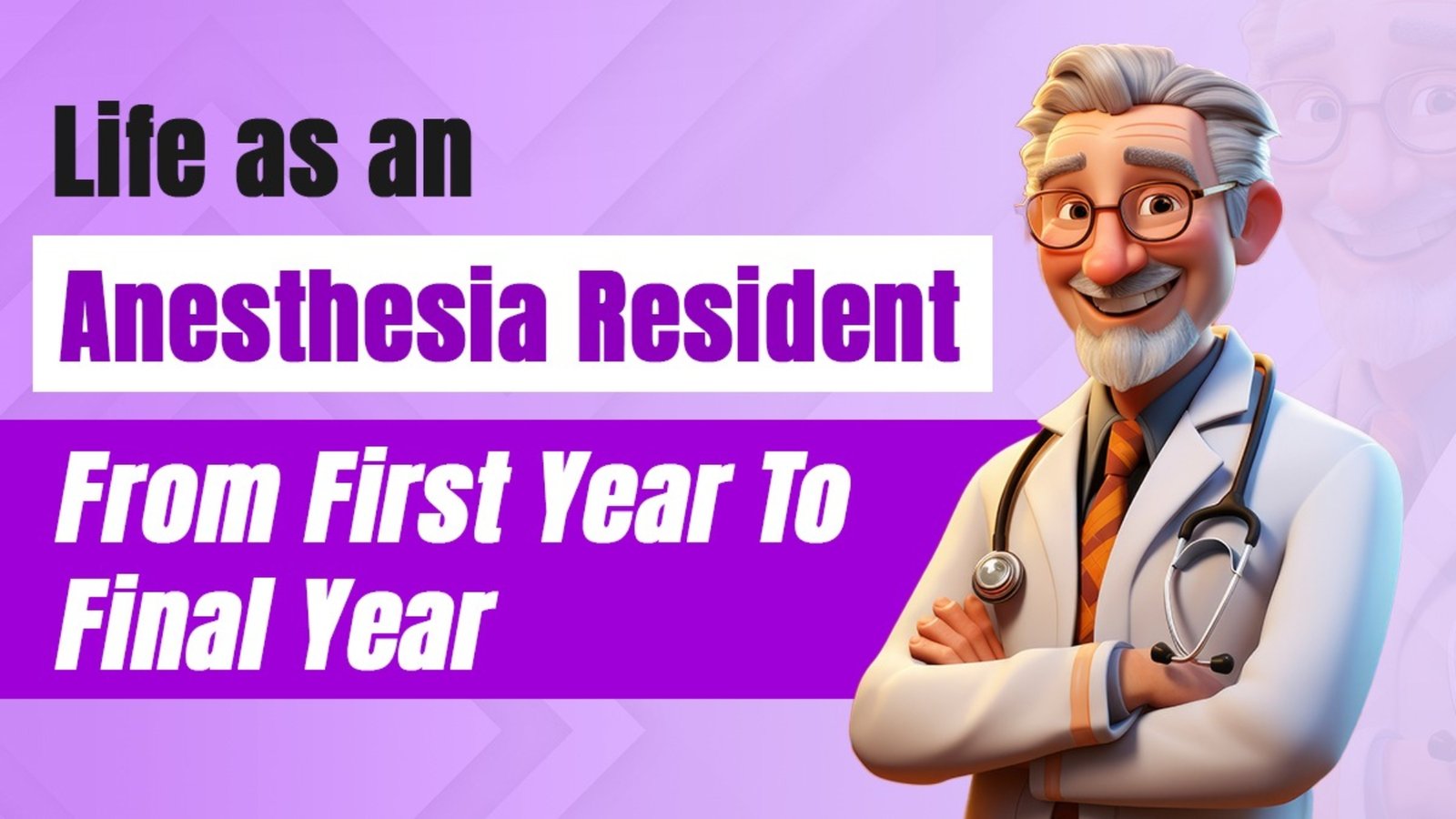Estimated reading time: 5 minutes
Are you thinking of choosing anesthesia as your speciality? Whether you’re a medical student exploring options or already leaning toward this field, anesthesia is a unique and rewarding career. However, like every medical speciality, it comes with its own set of pros, cons, and realities that you should understand before making your final decision.
What Is Anesthesia?
Anesthesia is a branch of medicine that aims to provide pain relief and ensure patient safety during surgical, diagnostic, or interventional procedures. Anaesthetists play a critical role in the management of pre-operative, intra-operative, and post-operative care so that patients are comfortable and stable throughout the process.
Pros of Choosing Anesthesia as a Residency Program
-
- Career Opportunities:
-
- Anesthetists are in demand in operating rooms (OR), ICUs, radiology suites (for CT/MRI sedation), and even pain management clinics.
-
- Opportunities are available through freelancing, government jobs, corporate hospitals, or even abroad.
-
- Flexible Work-Life Balance
-
- Options like freelancing offer work-life balance
-
- The corporate and government setup allows work-life balance with a structured time cycle
-
- High Salary Range
-
- Even as a freelance you can earn between ₹2 to ₹5 lakh/month depending upon the number of hours worked
-
- Government anesthetists have job security and a pension, while corporate ones see exponential growth in salary over time
-
- Multiple Streams
-
- After completing the residency, you can specialize in Cardiac, Neuro, Pediatric, or Onco-Anesthesia among other streams.
-
- DM/DNB courses or fellowships are ways to acquire further expertise
-
- Endless Learning:
-
- Every case is different, providing endless intellectual stimulation.
-
- There is little chance of automation taking over the role of anesthetists, as it requires human skills such as monitoring, decision-making, and emergency handling.
Cons of Choosing Anesthesia as Residency
-
- Surgeon-Dependent Work:
-
- Anesthetists’ work relies on surgeons, especially in freelancing. In freelancing work Good relationships with surgeons are essential.
-
- Less Patient Interaction:
-
- Unlike other specialities that require direct patient care, anesthetists spend most of their time managing patients during surgeries and rarely follow up afterwards.
-
- Residency Challenges:
-
- Residency involves long hours, handling emergencies, and learning critical skills like intubation, spinal/epidural blocks, and ventilator management.
-
- Mental focus and adaptability are critical during intense shifts and 36-hour duties.
-
- Emergency Duties:
Emergencies require immediate availability, which can disrupt work-life balance unless negotiated in advance.
How to Choose the Right Path in Anesthesia?
When selecting your academic path in anesthesia, consider your long-term goals and the type of training environment you prefer.
-
- MD (Doctor of Medicine): This is a 3-year program in college with a bond year in some government colleges
-
- DNB (Diplomate of National Board): 3-year residency in private or semi-private hospitals without any bond.
-
- DA (Diploma in Anesthesia): 2-year diploma with further qualifications being done with secondary DNB.
Each option offers unique opportunities, so choose based on the institute’s caseload, specialities, and training quality.
Tips for Choosing Residency Programs:
-
- Look for multi-speciality hospitals to get a flavour of surgical fields like neurosurgery, cardiac, and trauma.
-
- Ensure the institute has a high caseload to gain hands-on experience.
-
- Consider proximity to home, as residency is demanding and comfort matters.
Post-Residency Career Options
-
- Super-Specialization:
-
- Pursue DM/DNB in critical care, pain management, pediatric anesthesia, or onco-anesthesia.
-
- Fellowships:
-
- Shorter than DM/DNB, fellowships in regional anesthesia, airway management, or pain management provide specialized training.
-
- Freelancing:
-
- Best suited for those who want flexibility. There is minimal setup, and the income is directly proportional to the workload.
-
- Corporate and Government Jobs:
-
- Corporate hospitals pay better but require longer hours.
-
- Government jobs offer security, pensions, and predictable hours of work.
Is Anesthesia Right for You?
Before choosing Anesthesia few things you should have in mind.
-
- Love for Precision: Anesthesia requires attention to detail, rapid decision-making, and staying calm under pressure.
-
- Team Player: You will be working closely with surgeons, nurses, and technicians.
-
- Flexibility: Emergencies are unpredictable; flexibility is key.
-
- Patient-Centered: Though patient interaction is limited, you ensure the safety and comfort of the patient during critical procedures.
Why Conceptual Anesthesia?
Conceptual Anesthesia is your partner in learning. We make the subject easy while providing you with comprehensive resources, all of which are live and recorded lectures tailored to anesthesia residents. Conceptual Anesthesia platform ensures that you are ready for residency, exams, and much more from clinical insights to practical skills.
Key features include:
-
- Clinical Examination and Demonstration
-
- Theory Notes & Discussion
-
- DNB OSCE Sessions
-
- Conceptual Anesthesia Books(Hardcopy)
-
- Live Sessions by the Legandry Faculties on Important & Rare Cases
-
- Solved Question Papers
-
- Live MCQ Discussion for SS Exam
-
- Question Bank to Practice & High Yield Points
-
- ….and Many More
Conclusion:
Anesthesia is a challenging yet rewarding field, offering immense opportunities for those willing to put in the effort. Whether it’s the thrill of managing critical cases or the satisfaction of ensuring patient safety, anesthesia combines skill, precision, and compassion.
If you’re ready to embark on this fulfilling journey, equip yourself with the right knowledge and resources like Conceptual Anesthesia.











